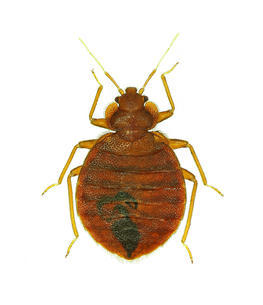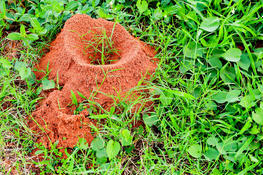 Whether you like them or not, insects are everywhere. Despite their small size, insects are essential to the ecological balance of our planet; from spiders to ants, every insect has a role to play.
Whether you like them or not, insects are everywhere. Despite their small size, insects are essential to the ecological balance of our planet; from spiders to ants, every insect has a role to play.
In most cases, we rarely see, hear or feel insects. They go about their daily or nightly business, rarely coming in to contact with humans.
And yet… of the 9 million or so species and types of insects to be found across the world, very few of them cause us any serious issues. Many scientists think there is a whole world of insects yet to be discovered but, the good news is, a tiny fraction of these insects live in and around Northamptonshire.
However some insects can cause problems from irritating bites and stings to food poisoning risks through cross contamination of foods and bacterial presence.
Insect swarms and infestations – why do they happen?

 99.9% of the time, insect populations are in harmony and balance to their environment in which they live. But, like all aspects of life, something will change. Anything from an abundance of their favoured food supply to a change in the weather can mean that the population of some insects will balloon… and we can be left with an insect infestation that requires the professional services of a local pest control company.
99.9% of the time, insect populations are in harmony and balance to their environment in which they live. But, like all aspects of life, something will change. Anything from an abundance of their favoured food supply to a change in the weather can mean that the population of some insects will balloon… and we can be left with an insect infestation that requires the professional services of a local pest control company.
- The weather – there are many instances in which the weather causes an imbalance in insect numbers. Long spells of certain types of weather can favour one insect over another. For example, long, hot and dry summers mean that spiders thrive; their numbers not only increase but they grow larger than normal. The onset of colder, wetter weather mean they seek the warmth and solitude of our homes.
- Our habits – but our habits and routines change too. When these changes become common place – like composting food waste – this can mean that some insects find that they are encouraged to stay, by being presented with an opportunity too good to miss. However, insects in the compose heap, for example worms, are an important and integral part of the breaking down, composting process… but are also lovely places for flies to lay their eggs and the maggots to thrive.
- Population – in the main, the weather and other factors, such as the availability of food, become a combination of factors that keep the population of insects in balance. But, when these fall out of synchronisation, the breeding cycle of some insects can be affected. Adults begin to lay more eggs, the young hatch and these in turn, create more adults. This can be a quick and sudden process, or one that builds over a longer period of time. However, it can be unpleasant for us, but also cause a huge amount of damage.
- Modern ways – our ability to travel has opened up a whole new highway for insects to be transported from one place to another. From bedbugs nestled in seating on the train or tube, to the weird and wonderful spiders found in supermarket bananas, insects can find their way into our world.
- Treatments – this is one more way in which we make it easier for some insects to get a foothold in our homes, businesses and interiors by using ineffective shop bought treatments or not using the treatments correctly. Fleas is a prime example; we are encouraged to treat pets with preventative chemicals but, incorrect use (or not using on an regular basis) means that they find their way in to our homes and businesses – and can be very difficult to get rid of.
Fortunately, the majority of insect infestations are not too bothersome or difficult to treat BUT, only with the expert, professional help of Northants Pest Control can you be guaranteed success. For a fraction of the effort and minimal fuss, here at Northants Pest Control, you and your home or business can be insect-free in next to no time.

 Ants
Ants Bedbugs
Bedbugs Fleas
Fleas Carpet Beetle
Carpet Beetle Moths
Moths Cockroaches
Cockroaches Wasps & Bees
Wasps & Bees Woodworm
Woodworm